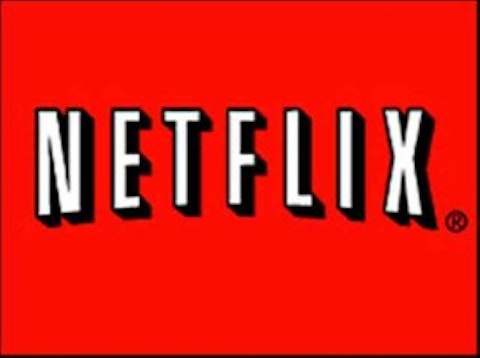Media syndication is forever changing, and for the better. Here’s how traditional media syndication works:
- Major TV networks buy shows from studio producers.
- After 80-100 episodes, TV networks syndicate shows by licensing old episodes to smaller TV channels.
Historically, shows with episodes that can stand alone, such as sitcoms like Friends, fare better in the syndication world than shows with long storylines. That’s because viewers rarely watch an entire consecutive season of reruns. Then came along Netflix, Inc. (NASDAQ:NFLX). Netflix is transforming the way people watch shows and the way TV networks sell shows.

Digital syndication, Netflix, Inc. (NASDAQ:NFLX)’s specialty, is taking over the after-market for TV shows and movies. Serialized dramas were often risky for TV networks because syndication wasn’t lucrative. Shows had one chance – go big during original air-time, or get dropped. But Netflix changed the formula.
Netflix allows viewers to catch up on old episodes. As a result, serialized dramas, such as “Lost,” have become hugely popular and far less risky for TV networks, especially with Netflix paying good money for exclusive rights. Further, Netflix provided cash to give “The Killing” a second chance after AMC Networks dropped it last year. In exchange, Netflix, Inc. (NASDAQ:NFLX) received exclusive streaming rights in the U.S. and Canada beginning only 3 months after the show’s end.
Netflix, dictator of digital syndication
Did you catch the key word above? Exclusive. That’s the next big change. Right on the heels of Netflix’s value proposition is a whole set of new demands. Syndicating with Netflix means syndicating only with Netflix. And if TV networks want to successfully syndicate serialized dramas, they have to talk to Netflix. Why the exclusivity? Netflix, Inc. (NASDAQ:NFLX) needs it to maintain dominance over competitors HBO, DirecTV (NASDAQ:DTV), and Amazon.com, Inc. (NASDAQ:AMZN). Here’s how the competition stacks up:
| Media Provider | Number of Subscribers |
|---|---|
| Netflix | 29.2 million U.S. (self-reported) |
| HBO | 28.7 million U.S. (external estimate) |
| DirecTV | 20.1 million U.S. (self-reported) |
| Amazon Prime | 10 million (external estimate) |
| Hulu | 4 million (self-reported) |
Data from Netflix, Variety.com, DirecTV, Business Insider, Hulu Blog
Netflix just added two million U.S. members in the first quarter of 2013, surpassing HBO for the first time. Refinancing a 8.5% bond in February gave Netflix a low EPS of only $0.05/share last quarter, but investors aren’t worried. Netflix, Inc. (NASDAQ:NFLX)’s stock price skyrocketed from under $100 in January to over $240 in July, a gain of 140%.
However, Netflix can’t sit back and relax: each rival video service offers significant value to potential viewers.
Competitive bundling
HBO On Demand is Time Warner Cable Inc (NYSE:TWC)’s instant entertainment service, offering viewers anytime access to over 140 HBO programs. In the first quarter, Time Warner Cable Inc (NYSE:TWC)’s revenue from home video and electronic delivery of theatrical and television products rose 4% from the first quarter of 2012 to total $682 million, representing nearly 10% of revenue. Time Warner Cable Inc (NYSE:TWC) subscribers have to pay an additional monthly subscription to get HBO On Demand, but Time Warner’s advantage is owning the HBO network. HBO shows appear instantly On Demand, while Netflix, Inc. (NASDAQ:NFLX) customers have to wait for syndication, which could take up to a year.
DirecTV boasts 20.11 million U.S. subscribers, earning an average of $96 a month from each one. DirecTV (NASDAQ:DTV)’s On Demand service is bundled with a satellite subscription to dozens of tv channels, something Netflix can’t offer. For viewers who want both TV channels and on-demand entertainment, DirecTV (NASDAQ:DTV) beats Netflix every time.
Amazon.com, Inc. (NASDAQ:AMZN) bundles its media programming with membership in Amazon.com, Inc. (NASDAQ:AMZN) Prime. An estimated 10 million members pay Amazon Prime subscriptions and individually spend, on average, more than twice as much as a non-Prime member over the course of a year. Morningstar analyst R.J. Hottovy added up the additional revenue generated by Prime shoppers, subtracted the cost of all the Prime subscription perks, and determined that each Prime customer made Amazon about $78 in 2012. Collecting $78 from each Prime member means $780 million in Amazon profits.
To put that in perspective, Amazon reported net income of $631 million for all of 2011 and -$39 million in 2012. Without the Prime subscriptions, Amazon would have been in the red (or even more so) for two consecutive years. No wonder Amazon tries to entertain Prime customers with Amazon Video. If an online shopper decides to buy Amazon Prime for the free two-day shipping perk, he could find that he doesn’t need a Netflix subscription.
The Netflix advantage
Without the fancy product bundles of Time Warner, DirecTV, and Amazon, Netflix, Inc. (NASDAQ:NFLX) must own the best content to survive. But the bright side is that’s Netflix’s advantage. Time Warner’s focus is TV networks and entertainment. DirecTV provides cable. Amazon owns online shopping. Netflix must be digital syndication, and it must be the very best at it.
All media companies are in a fight for customers. Paying premium prices for exclusive content diverts competitor funds away from providing core services to customers. So in the long run it’s quite possible that on-demand entertainment will drain rivals’ resources. But exclusive content is Netflix’s focus, and this is where Netflix will win the battle. I believe acquiring expensive content is the right strategy. If Netflix holds exclusive rights to a viewer’s favorite shows, Netflix wins the customer.
Farewell to the old system of syndication, because I think the Netflix model is here to stay.
The article 1 Company Transforming the Media Industry originally appeared on Fool.com and is written by Marie Palumbo.
This article was written by Nathan Adamo and edited by Chris Marasco. Chris Marasco is Head Editor of ADifferentAngle. Neither has a position in any of the stocks mentioned. The Motley Fool recommends Amazon.com, DirecTV, and Netflix. The Motley Fool owns shares of Amazon.com and Netflix. Marie is a member of The Motley Fool Blog Network — entries represent the personal opinion of the blogger and are not formally edited.
Copyright © 1995 – 2013 The Motley Fool, LLC. All rights reserved. The Motley Fool has a disclosure policy.



